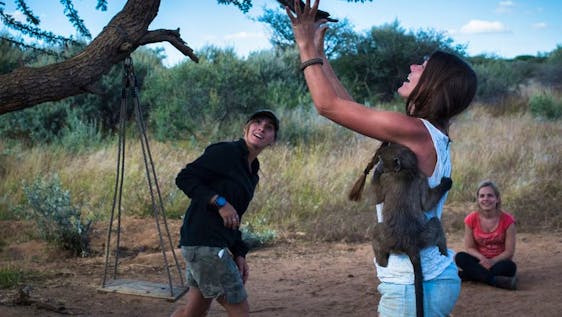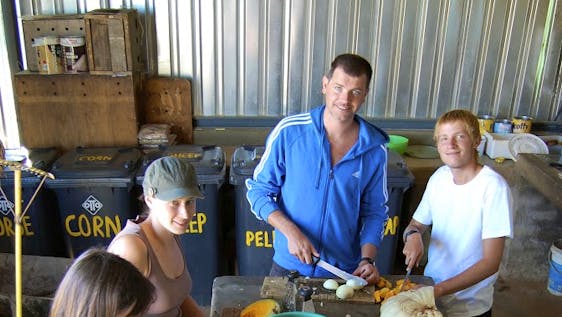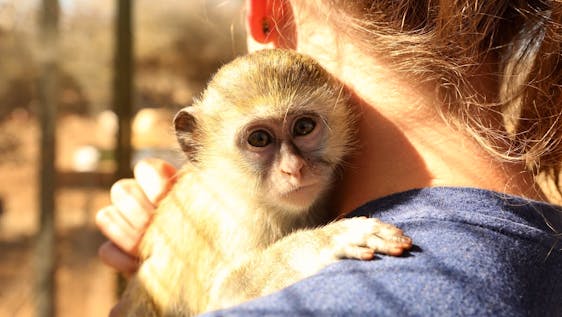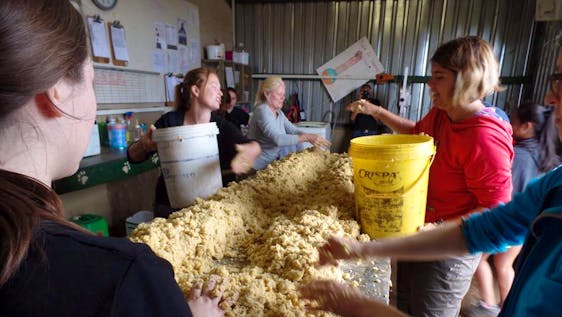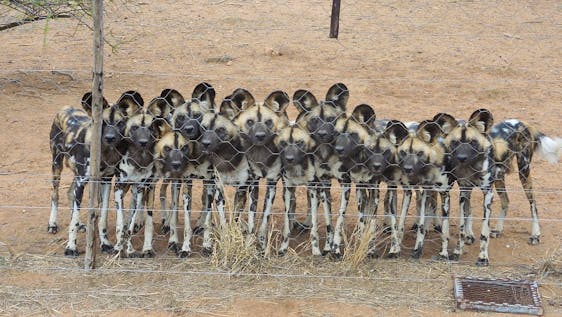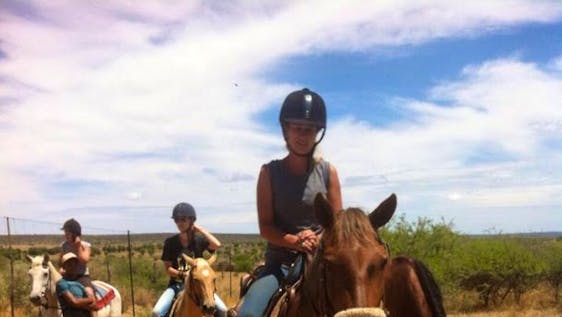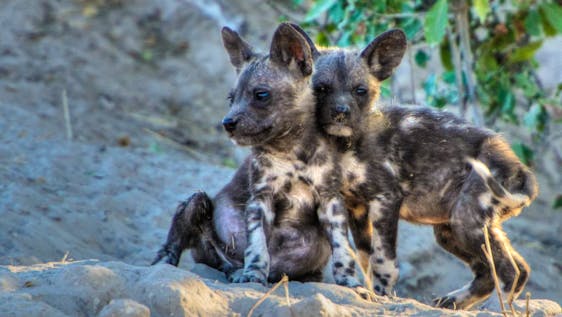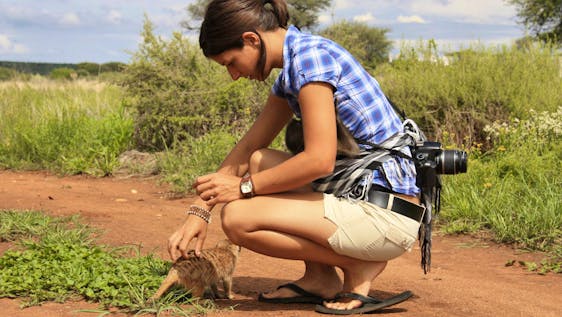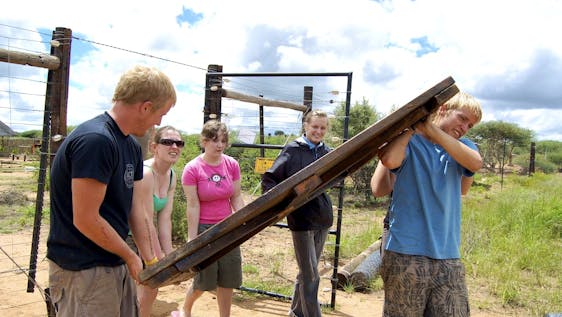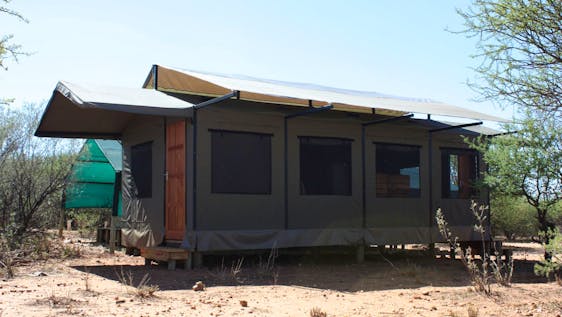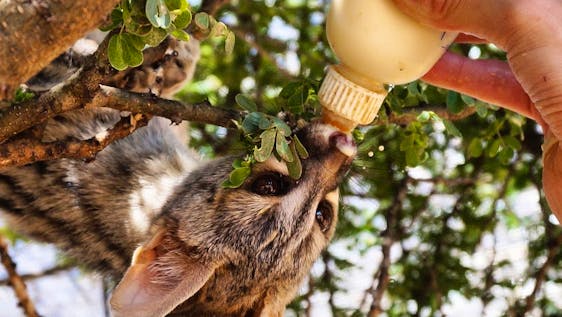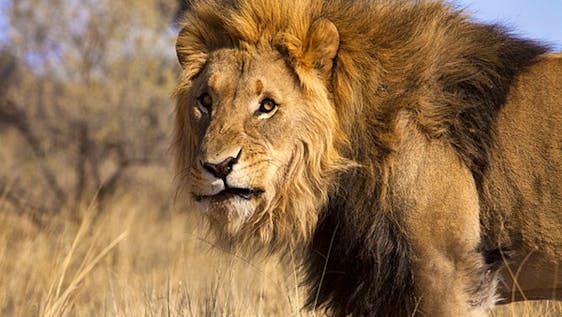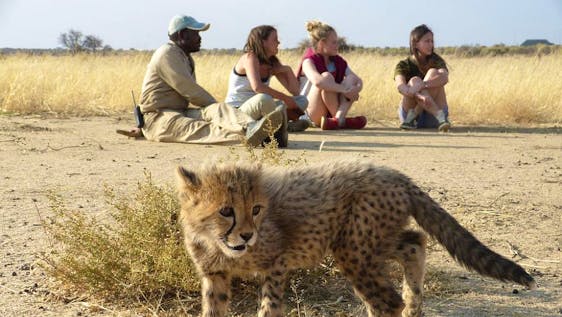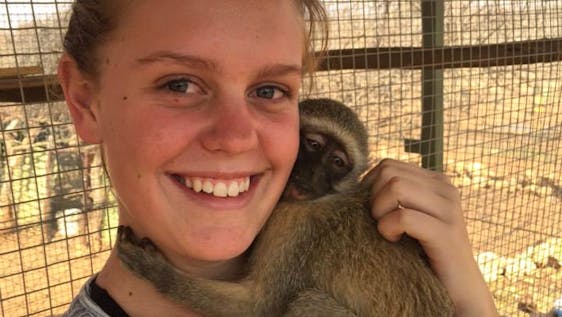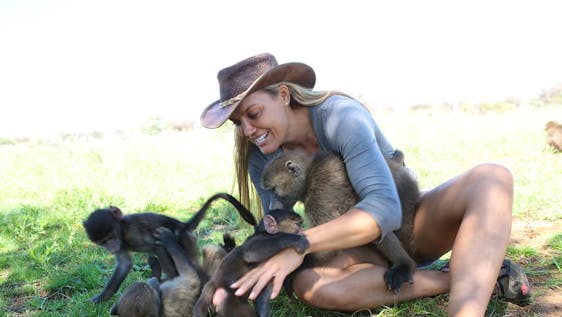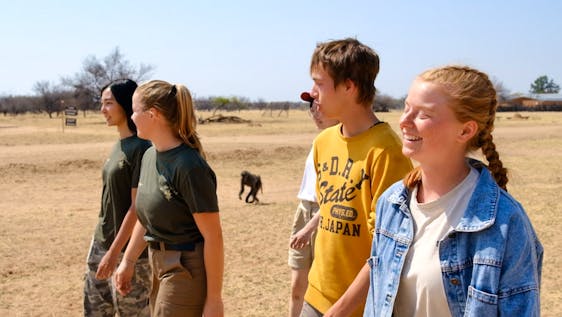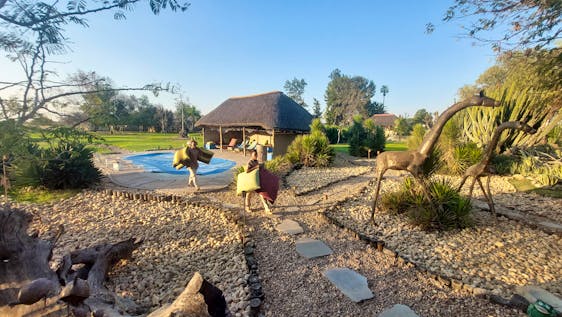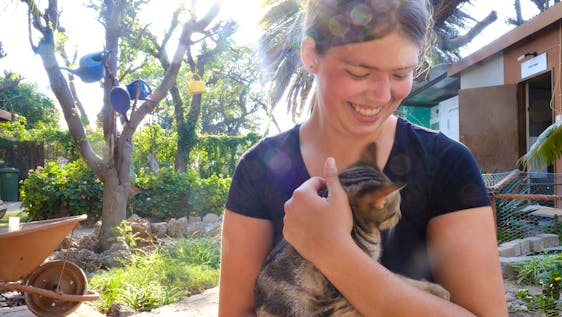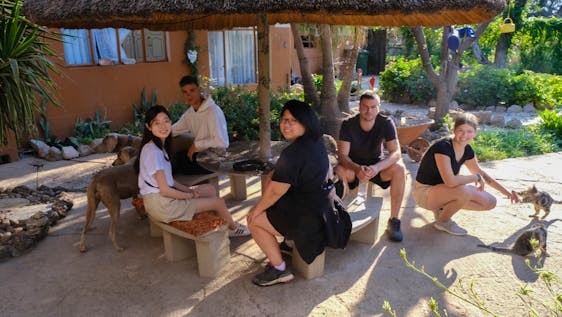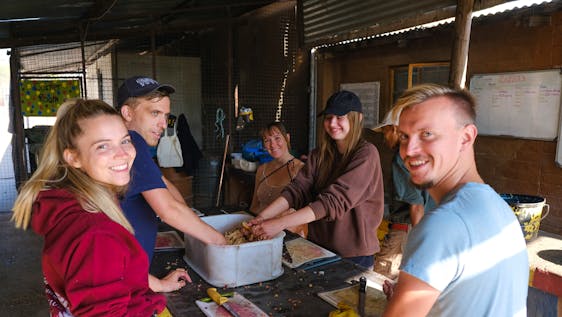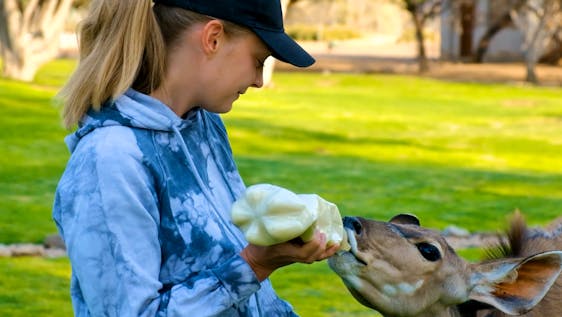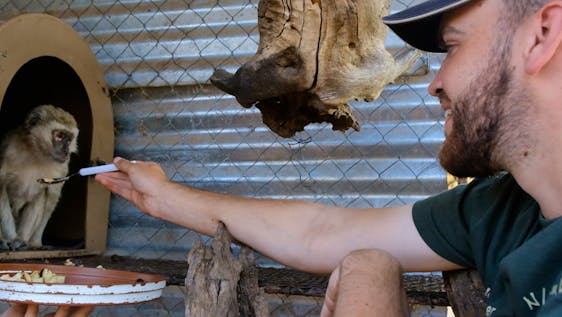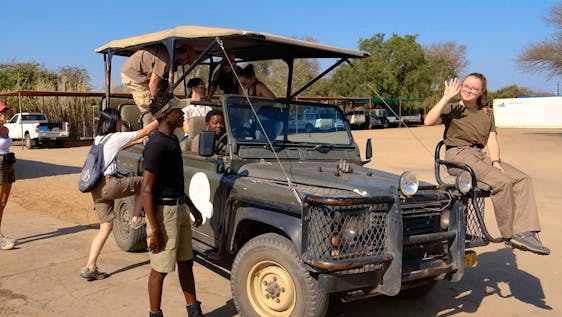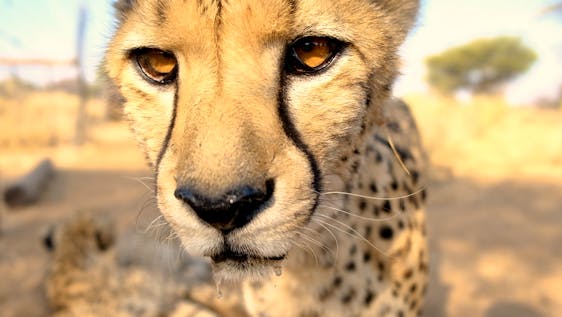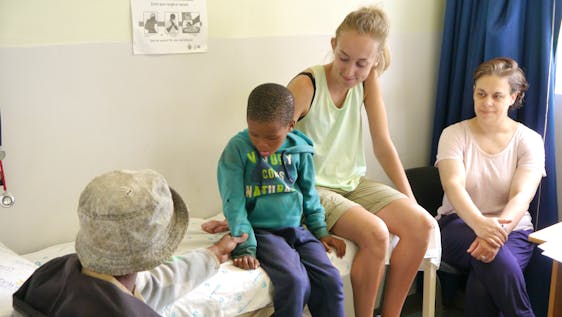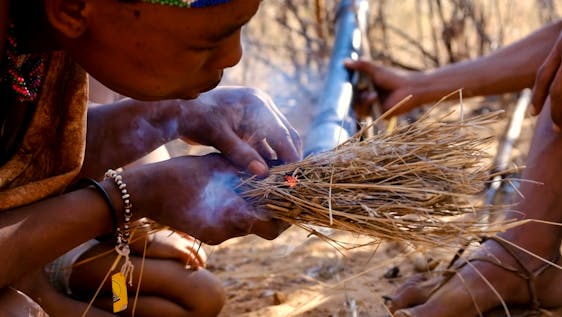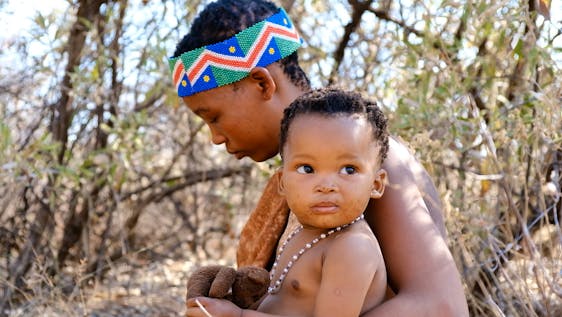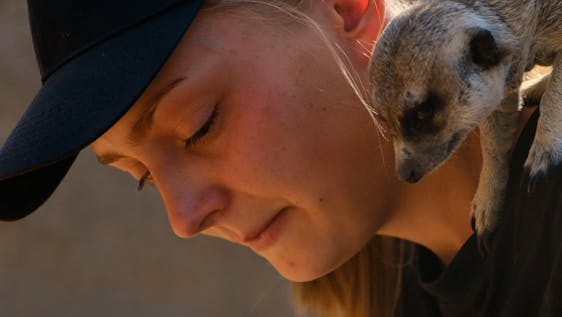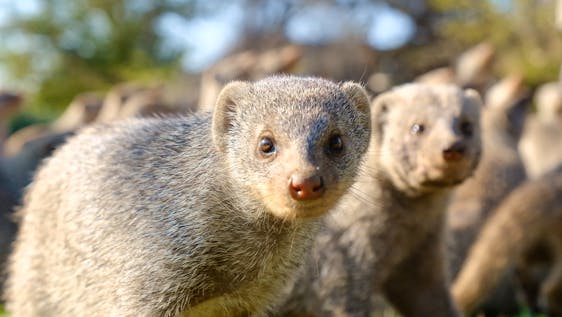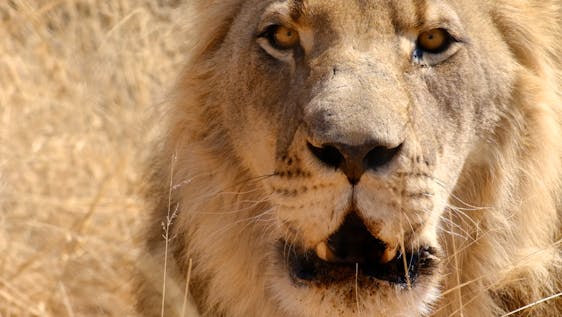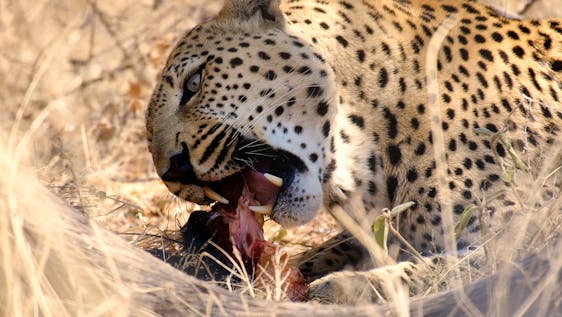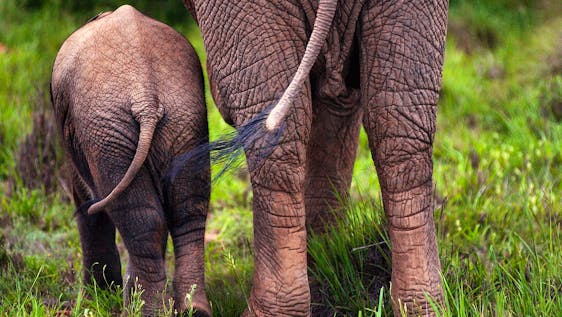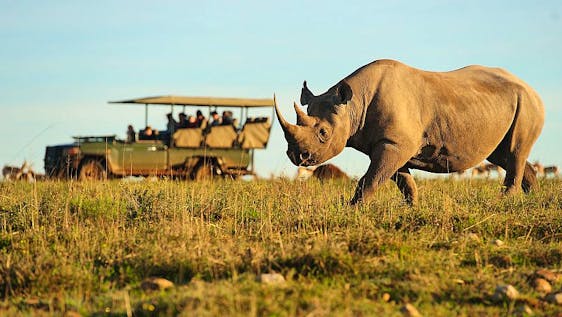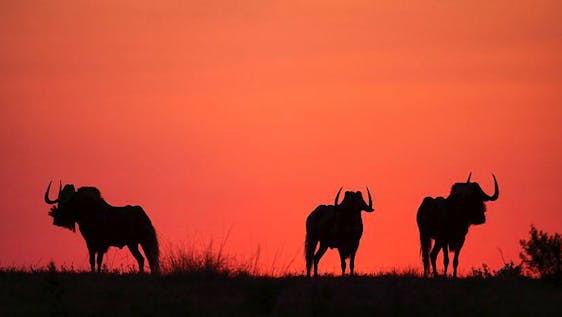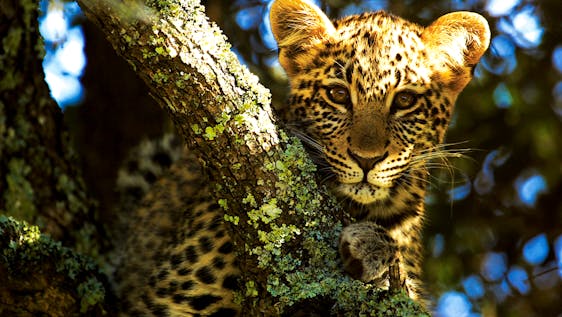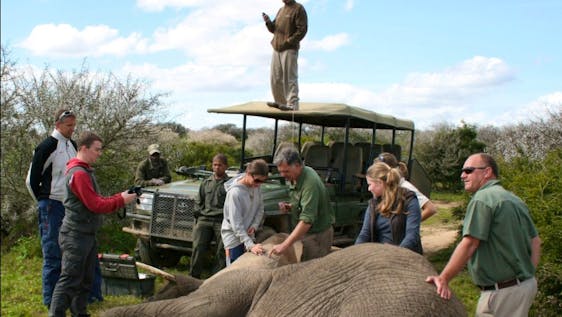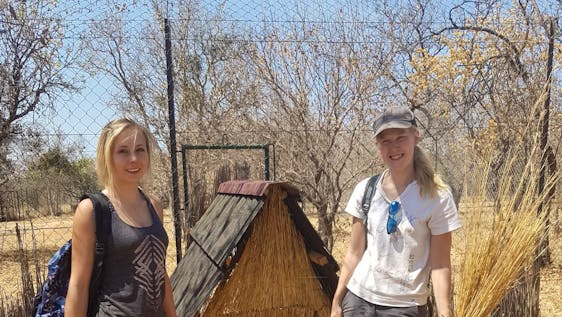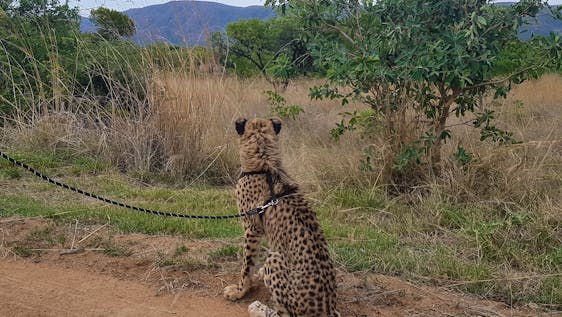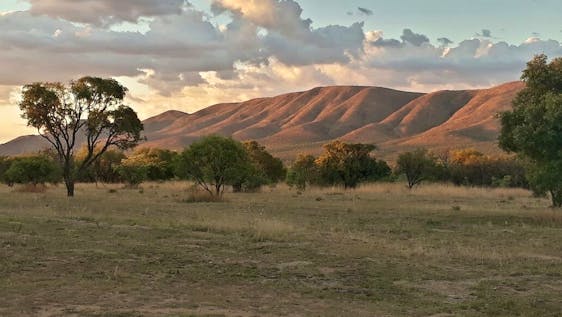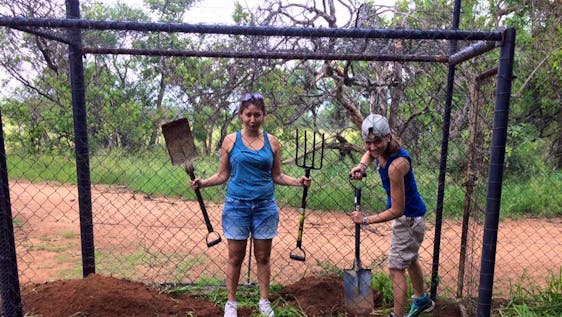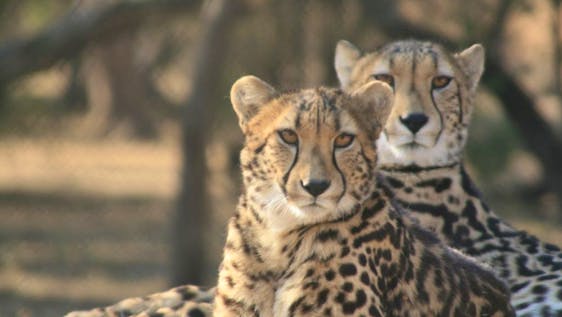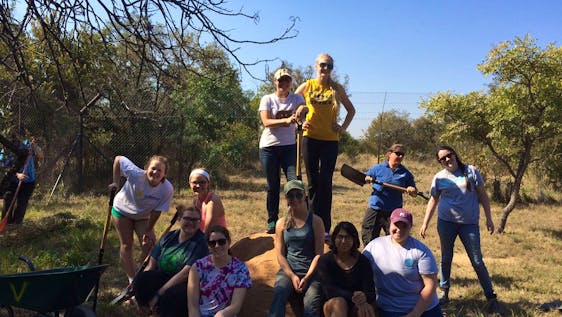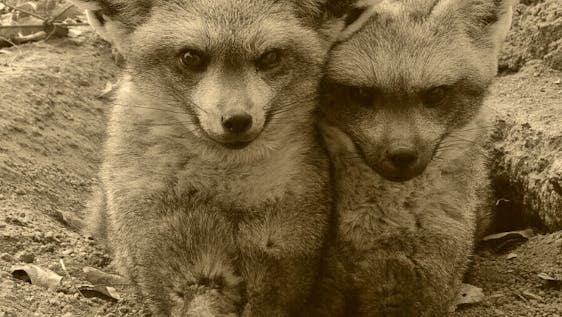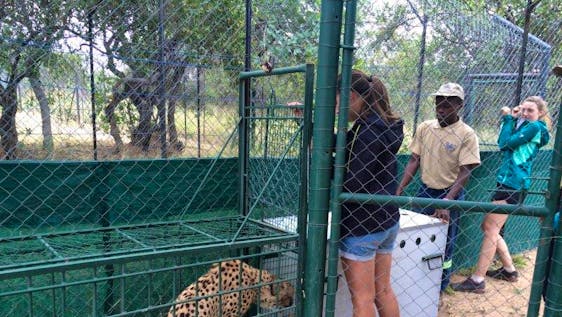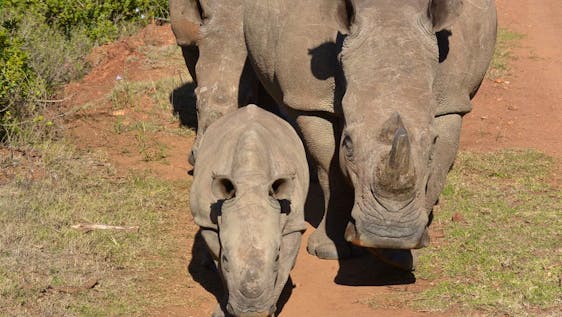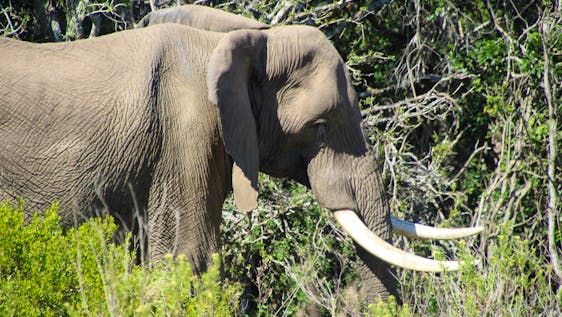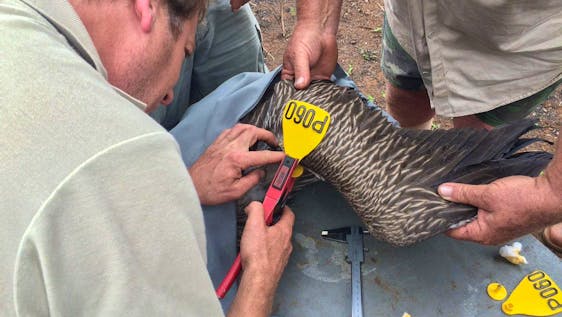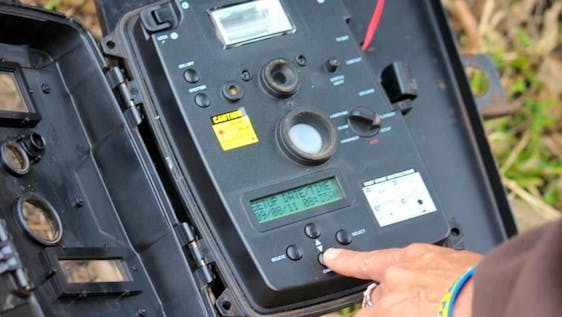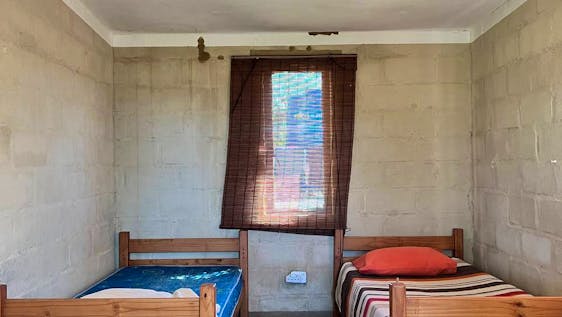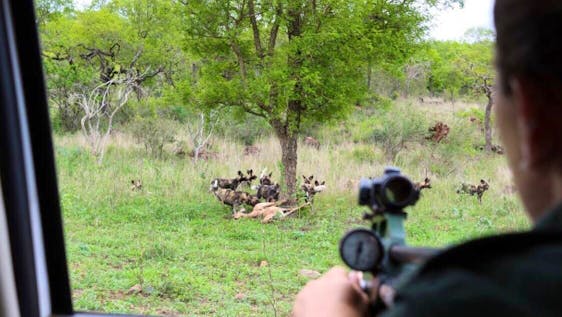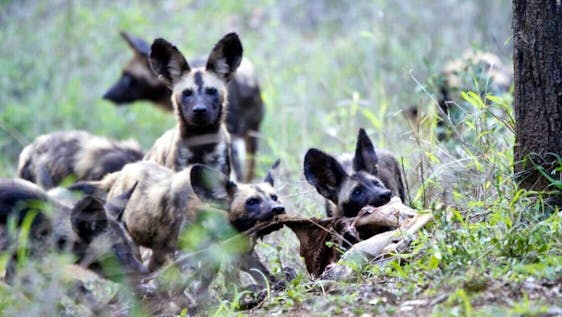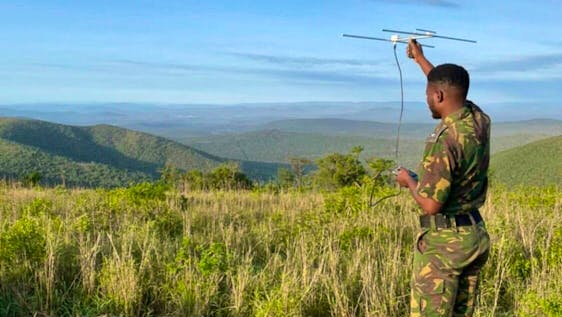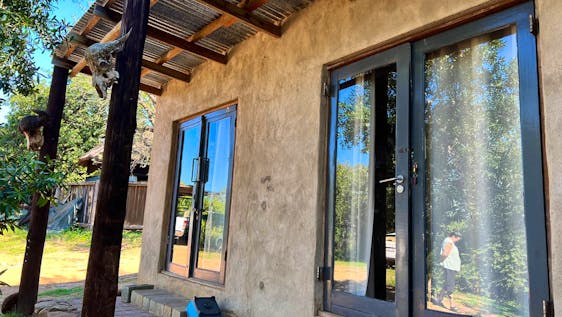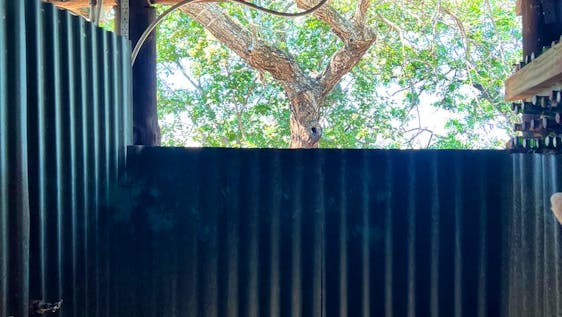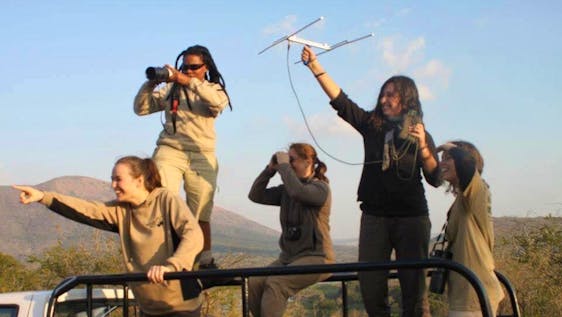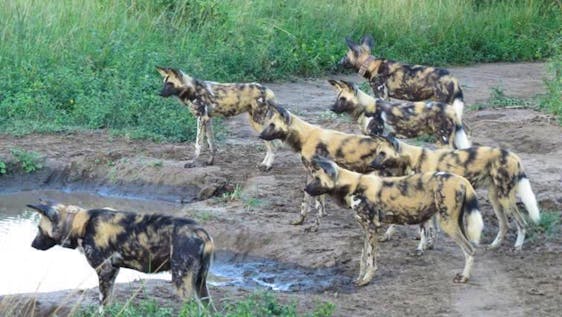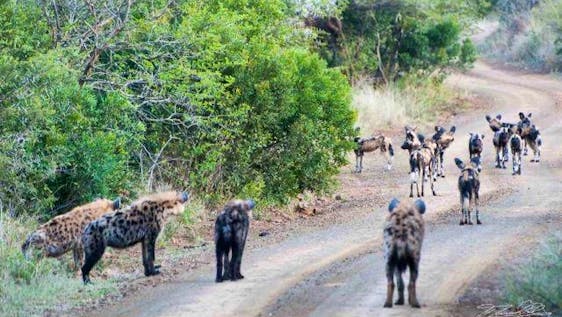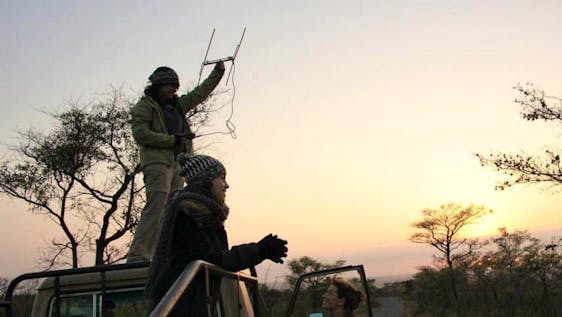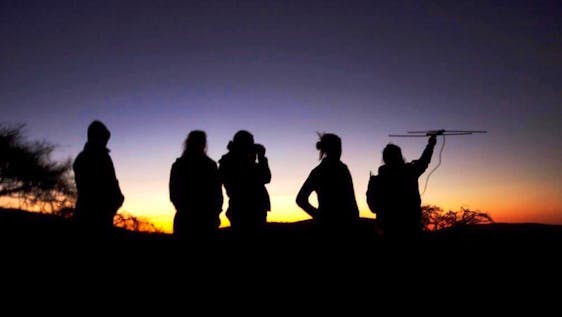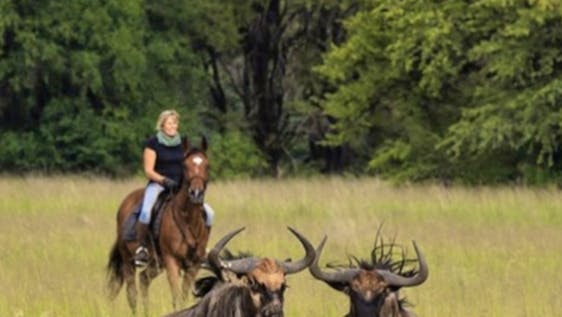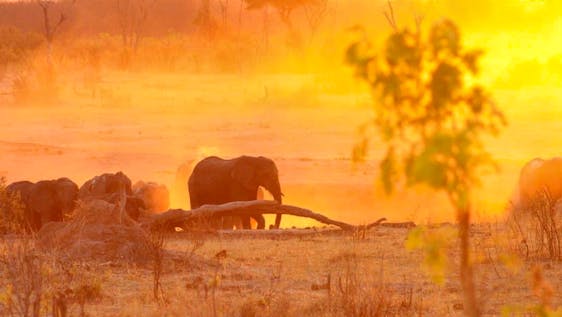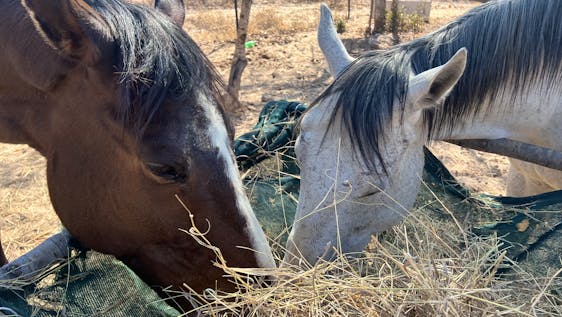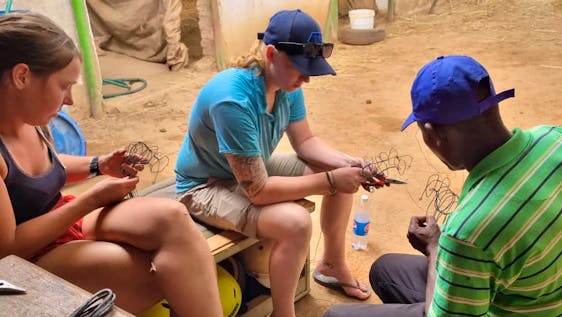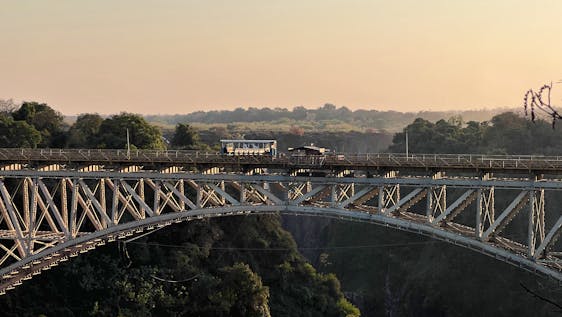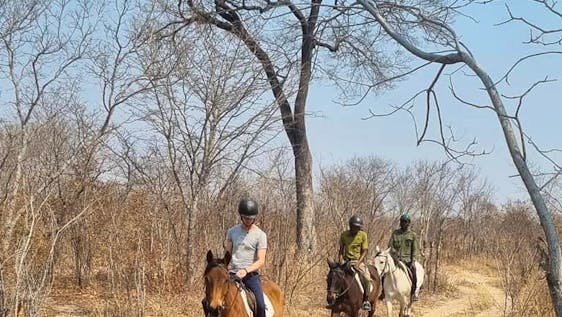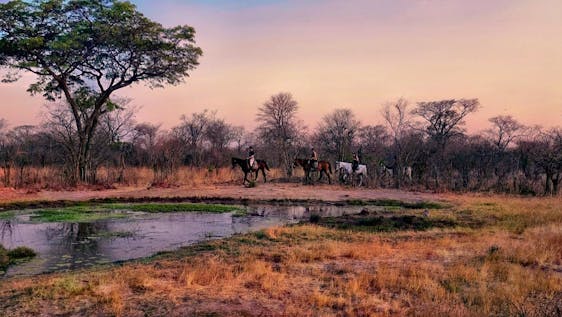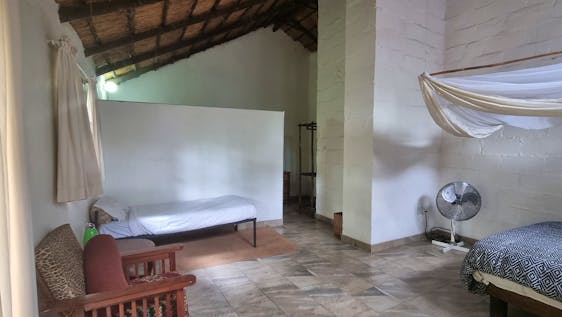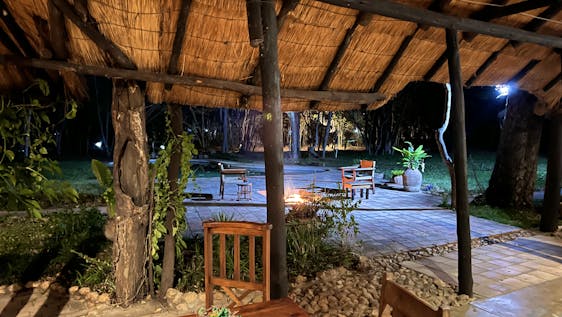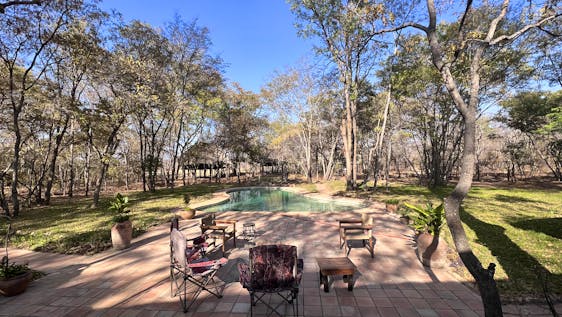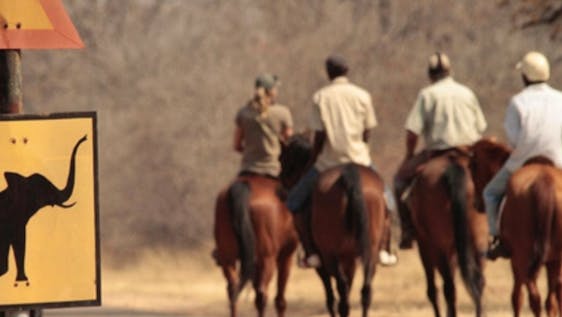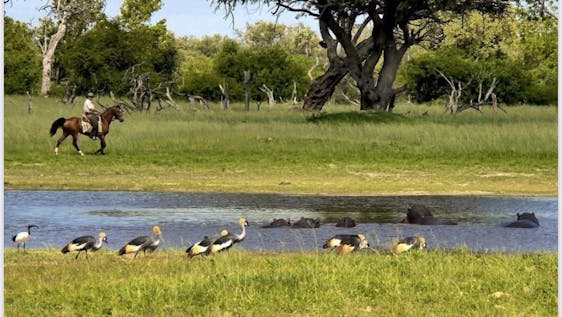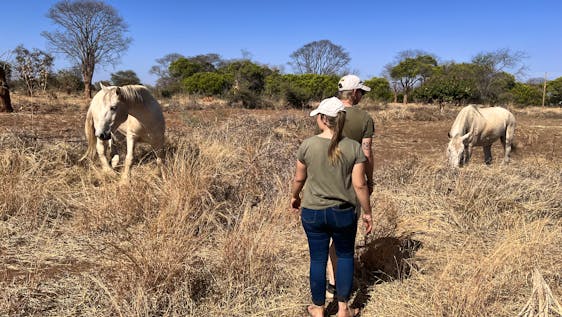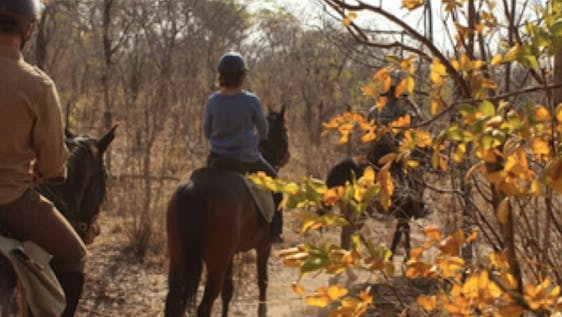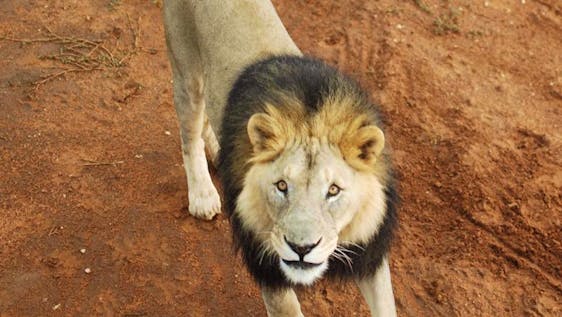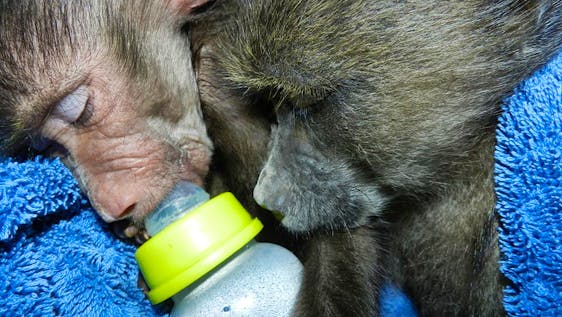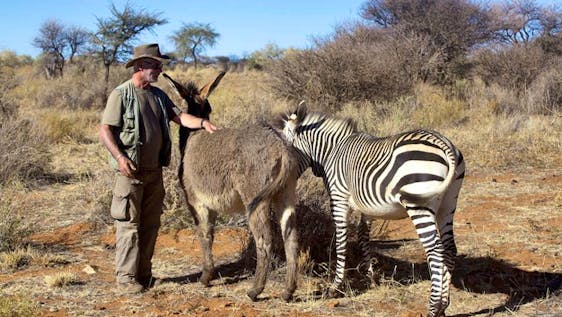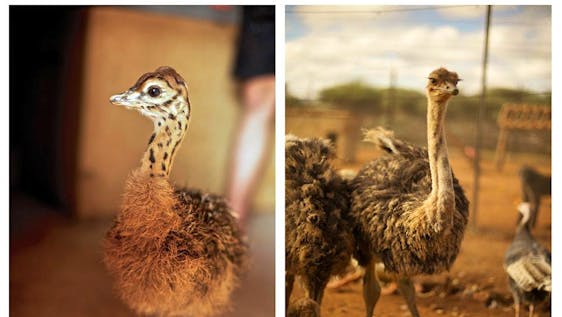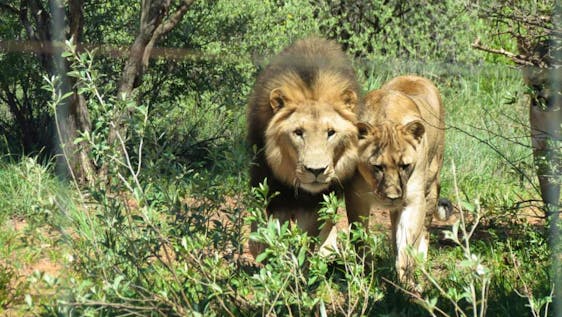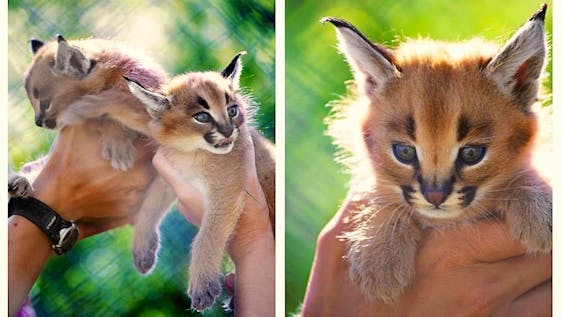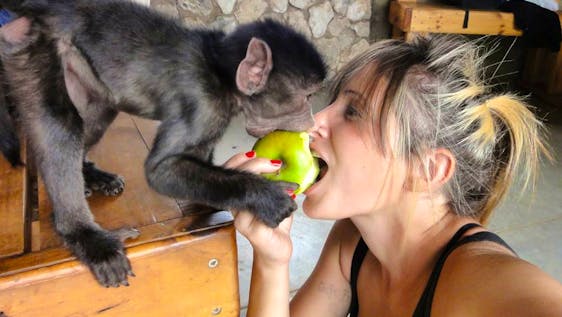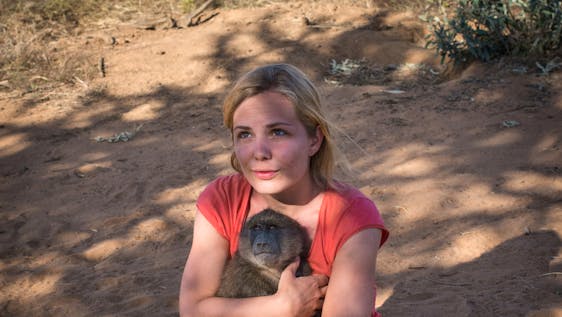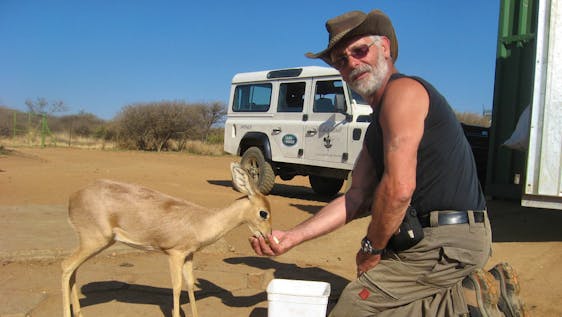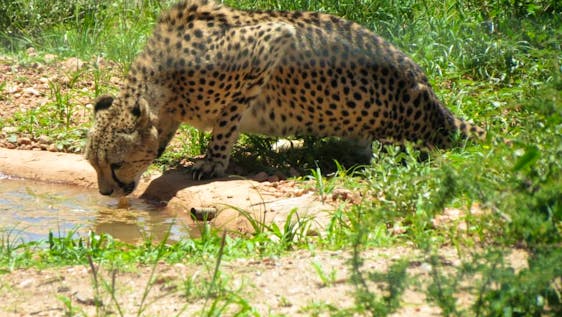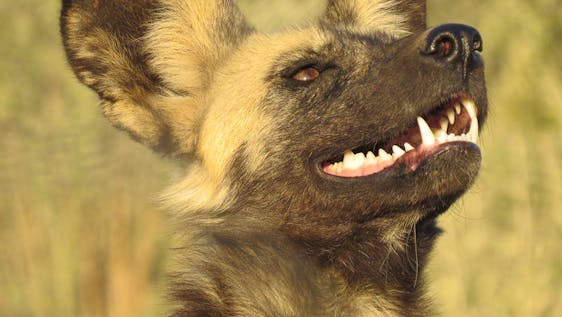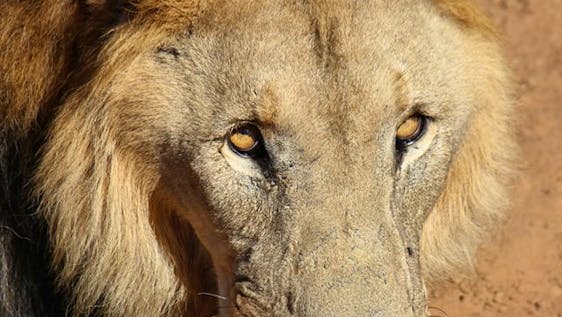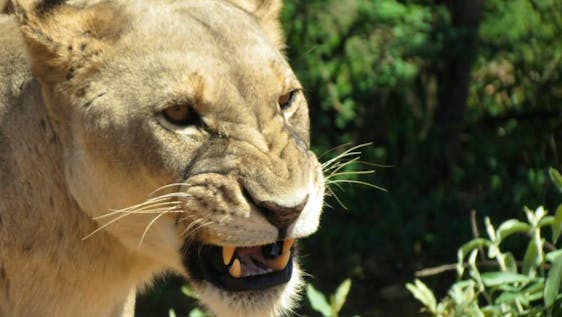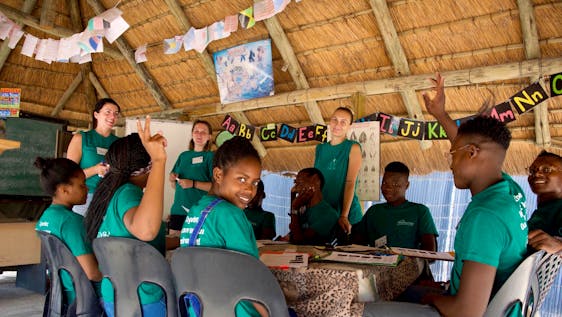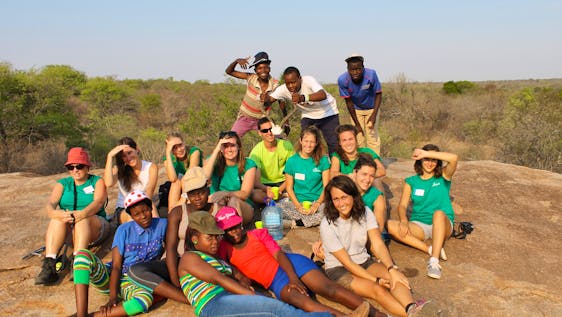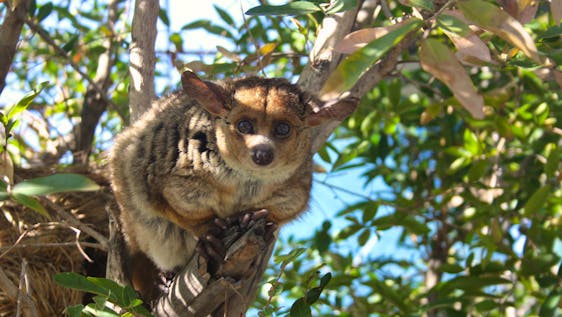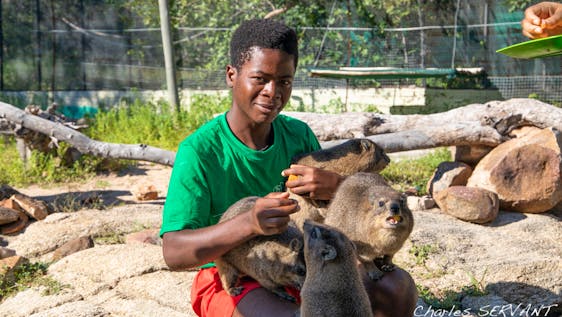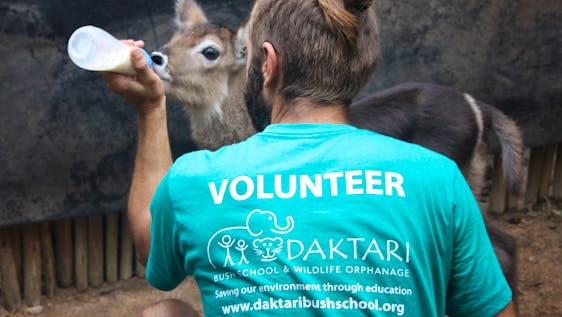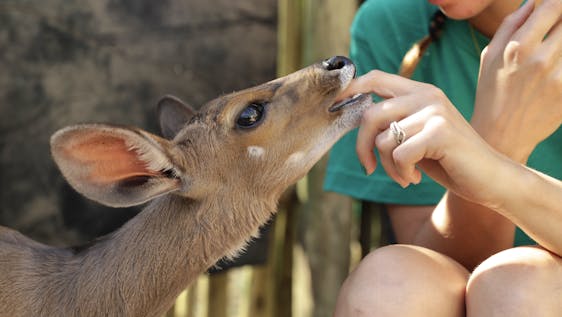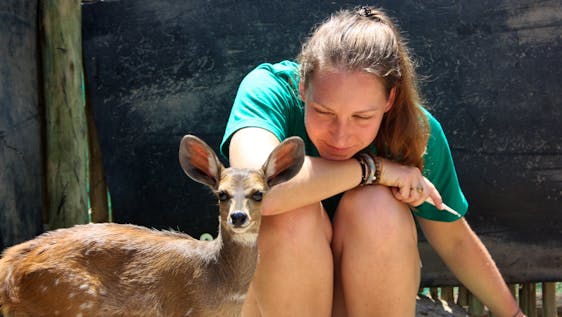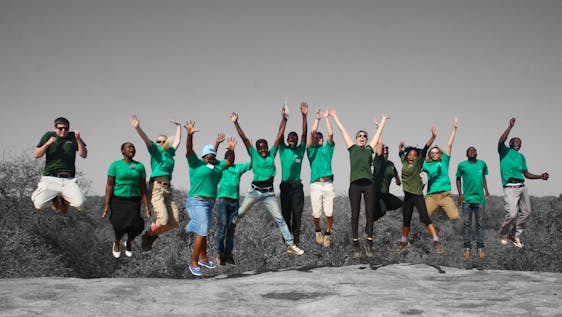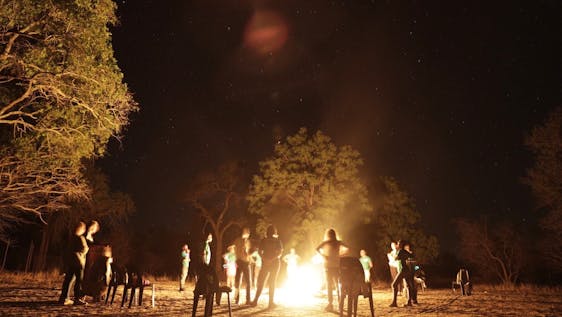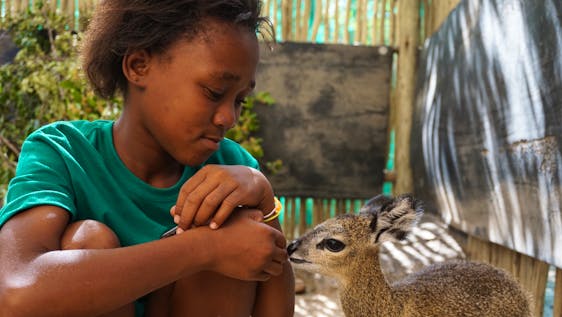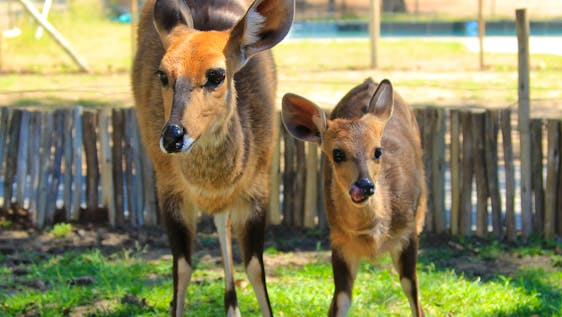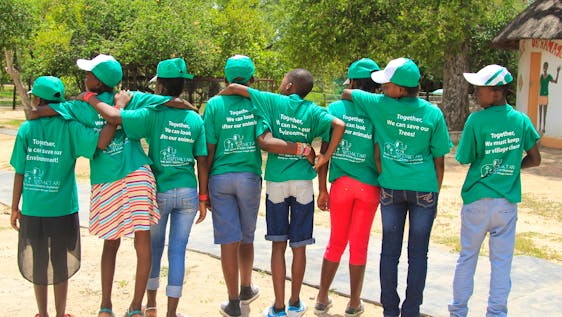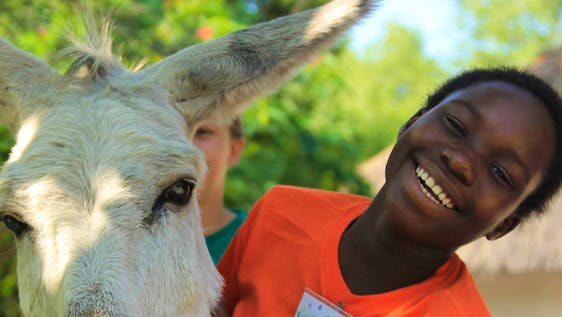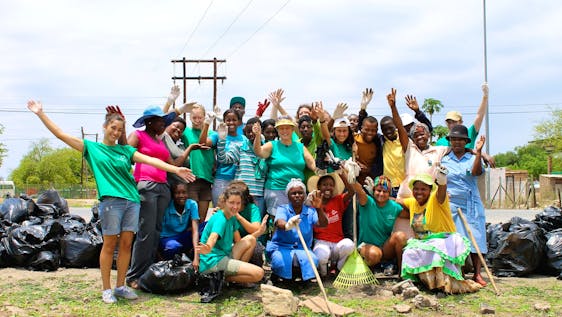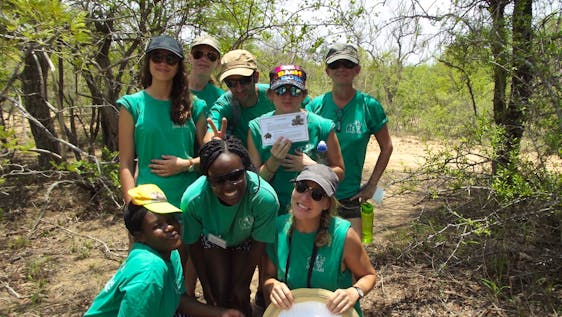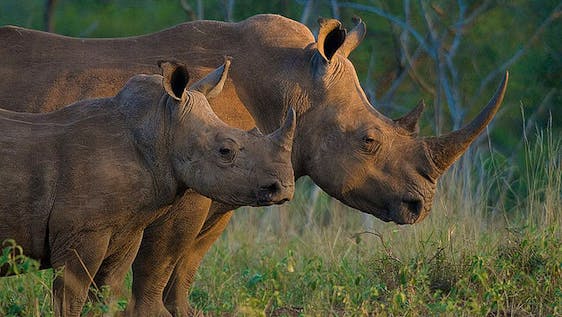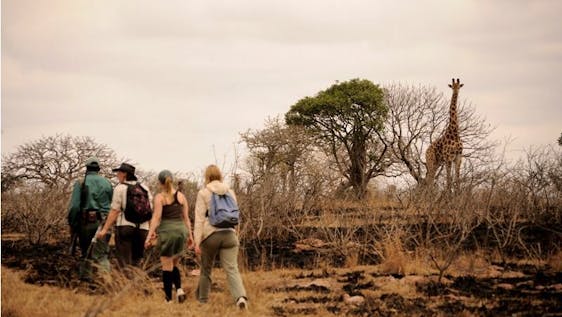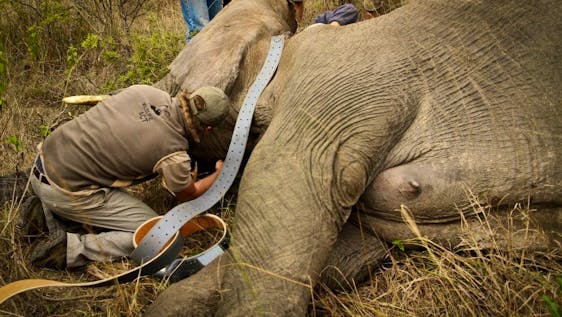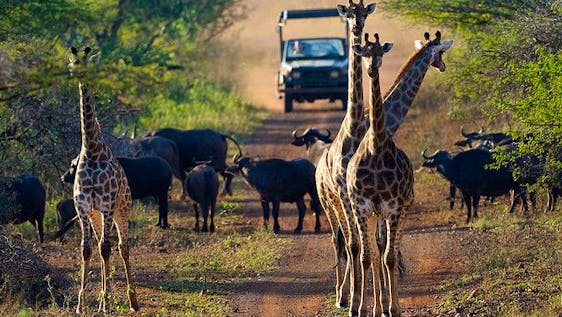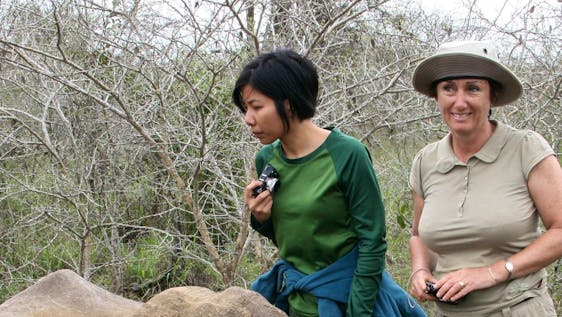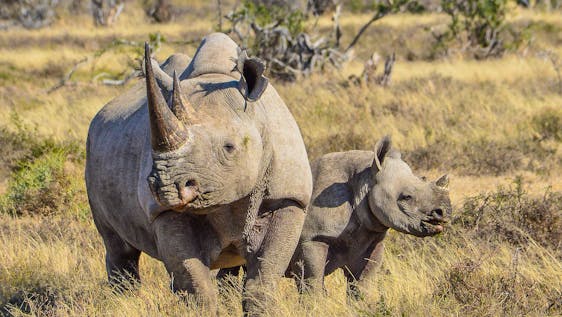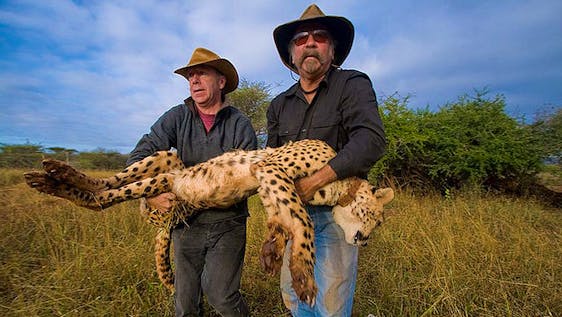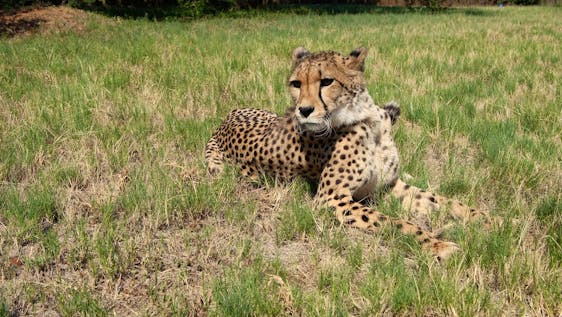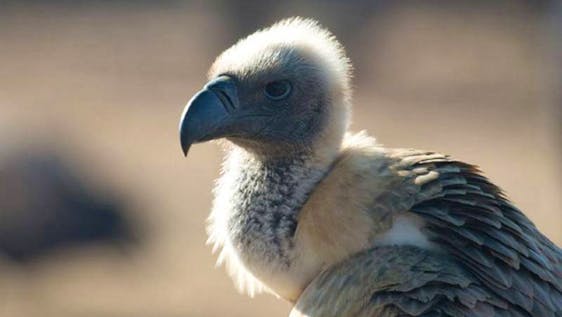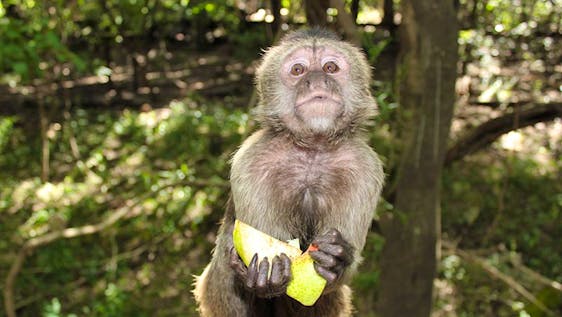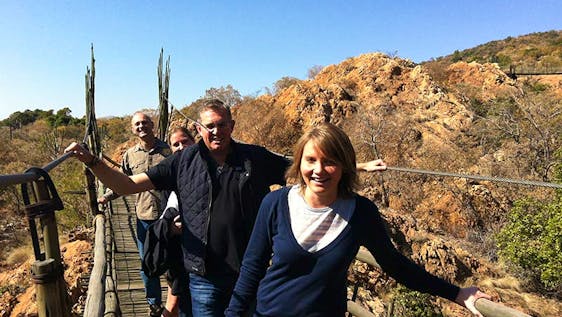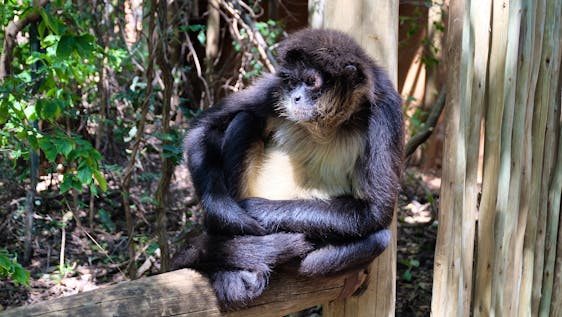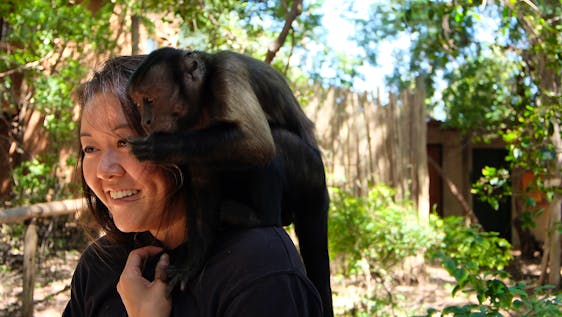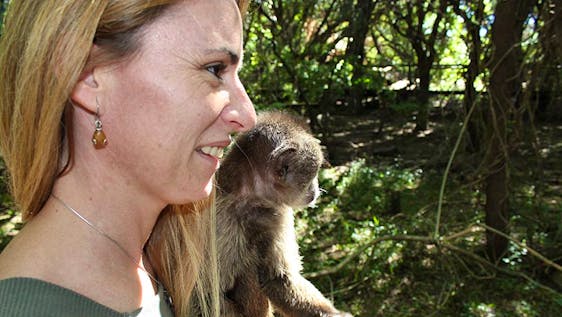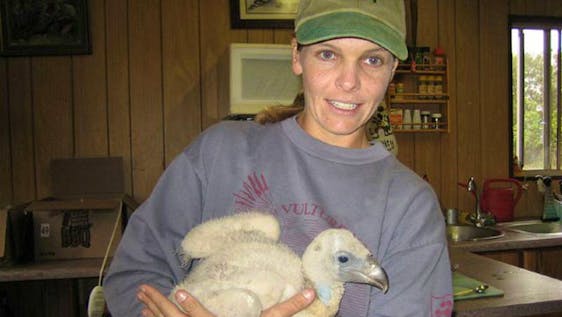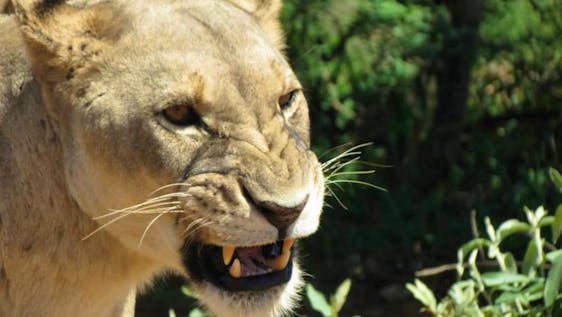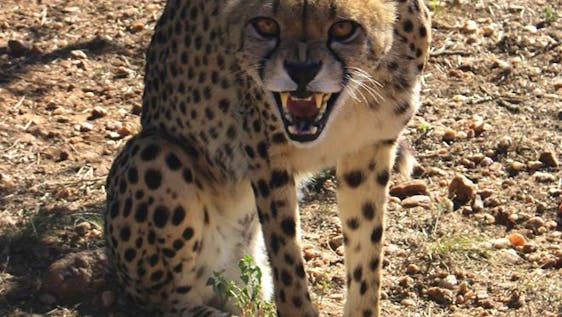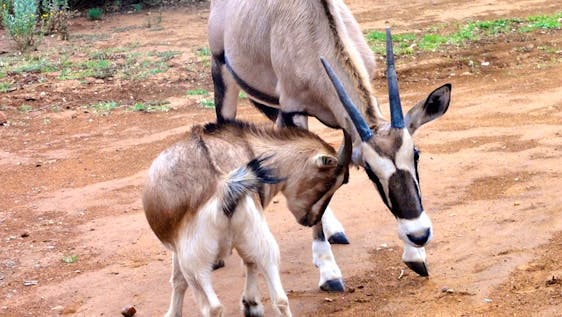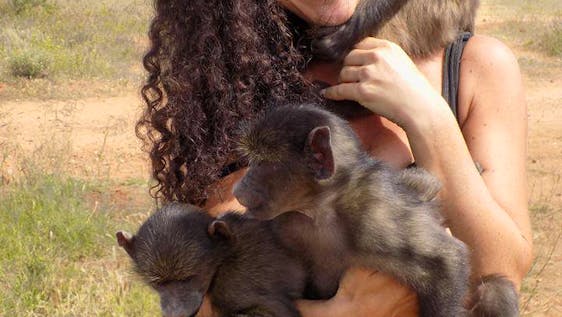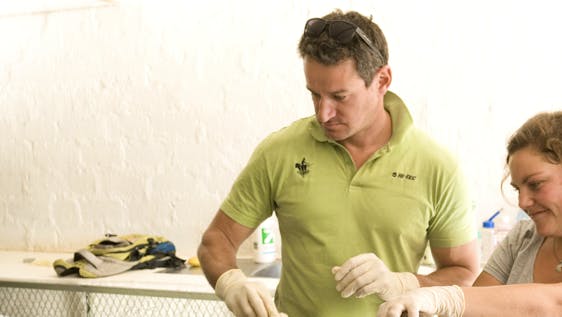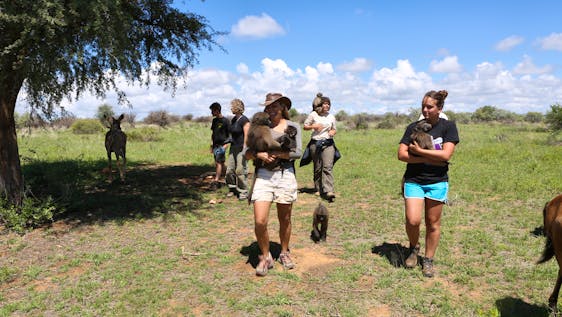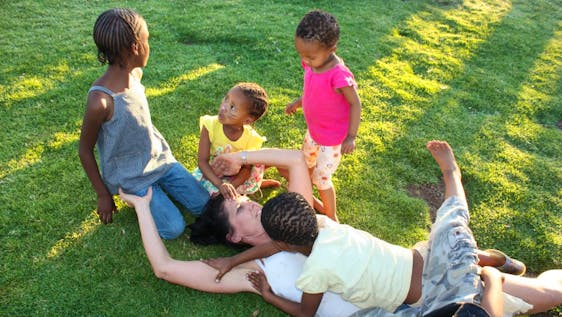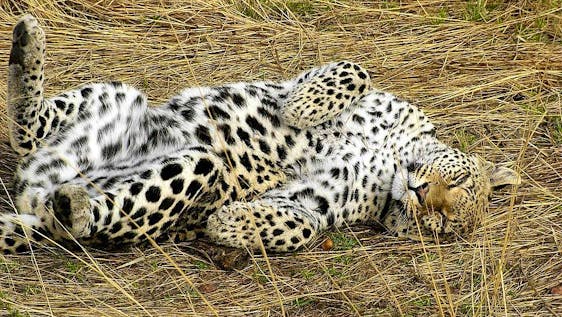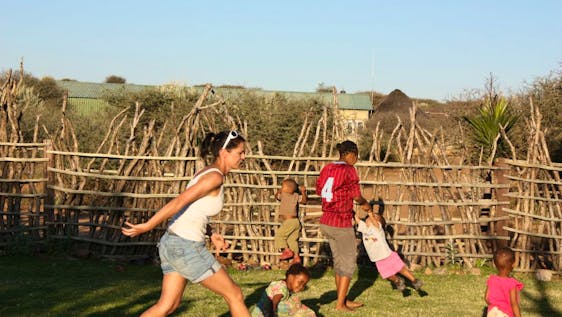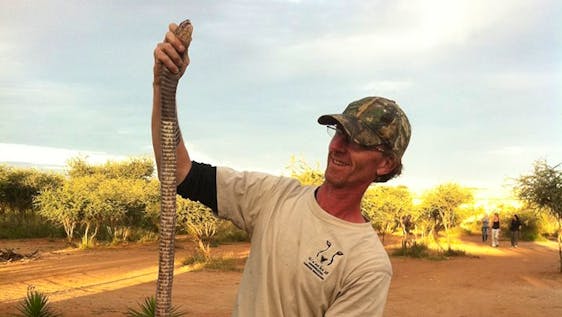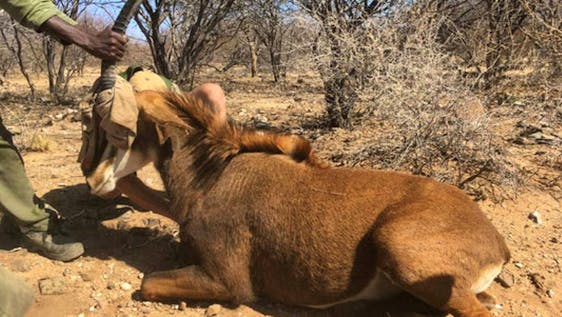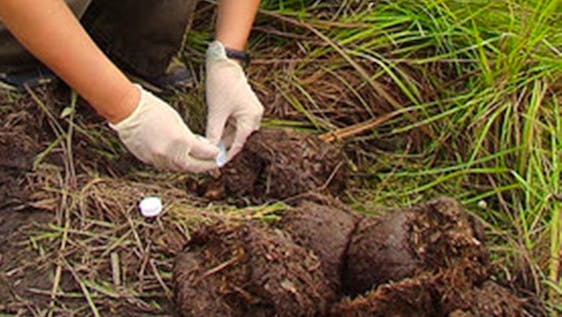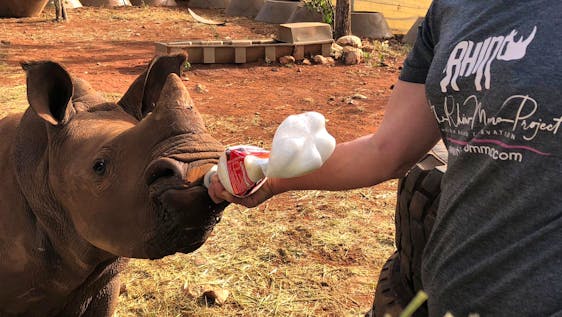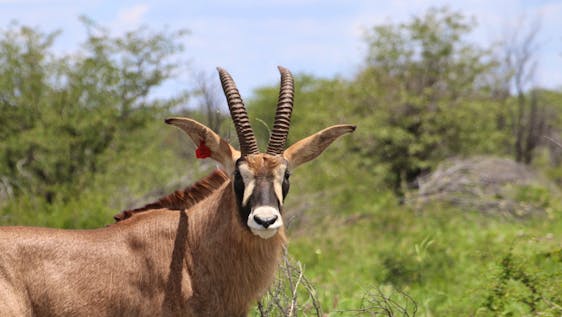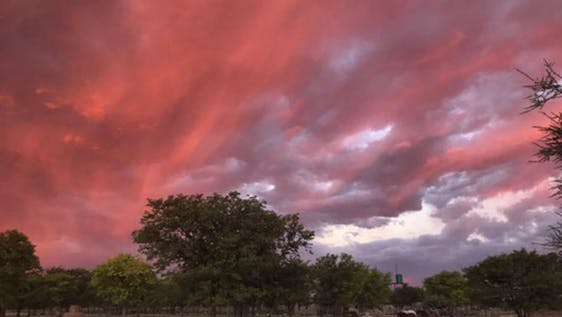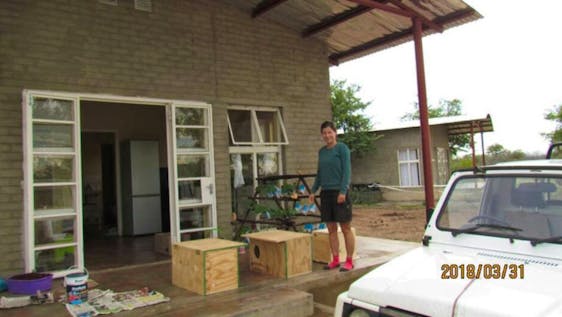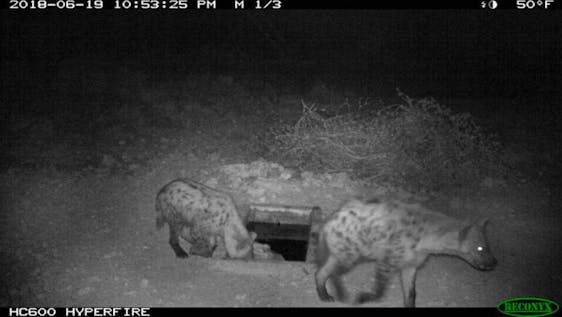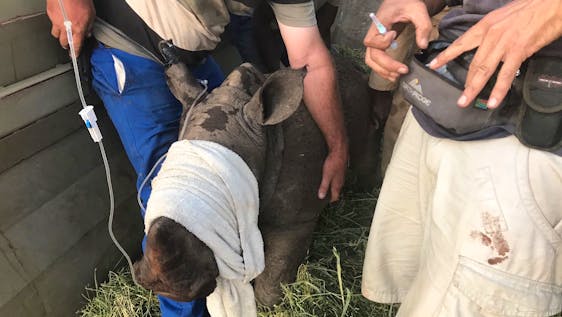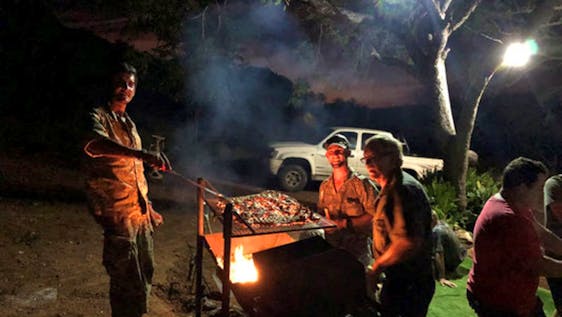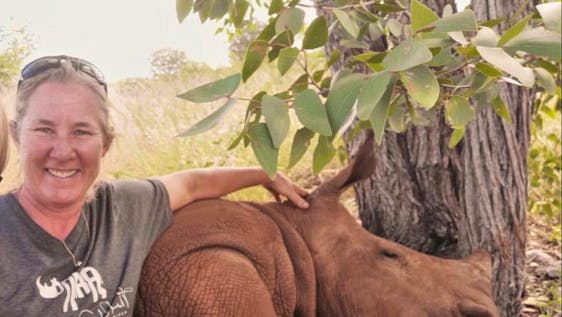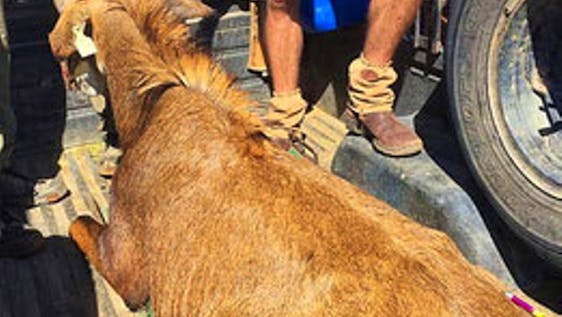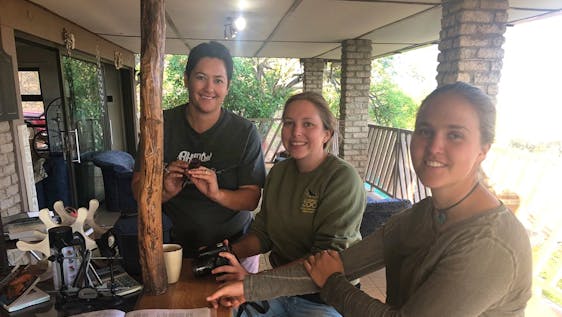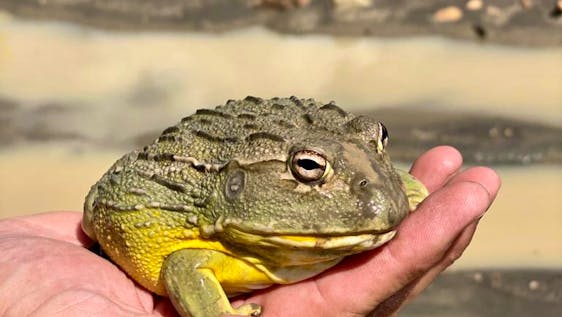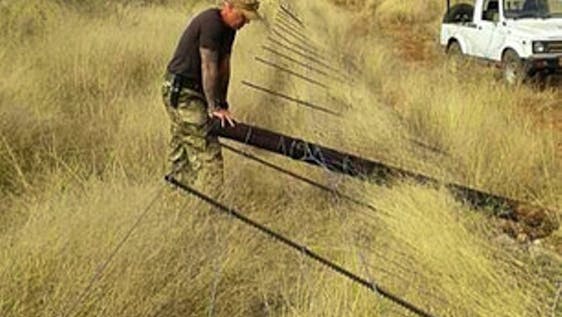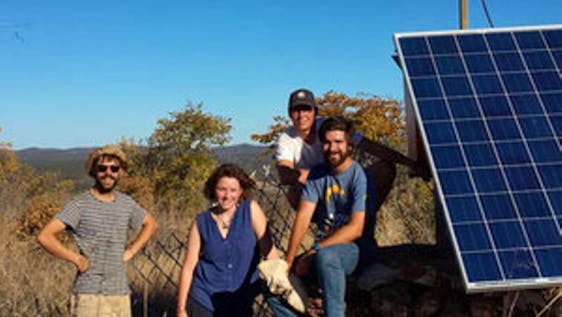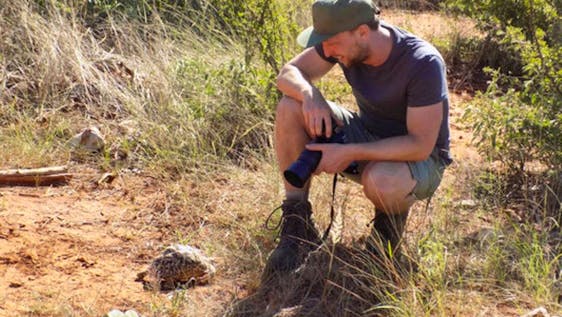Volunteer with African Wild Dogs
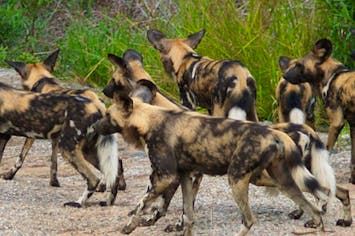
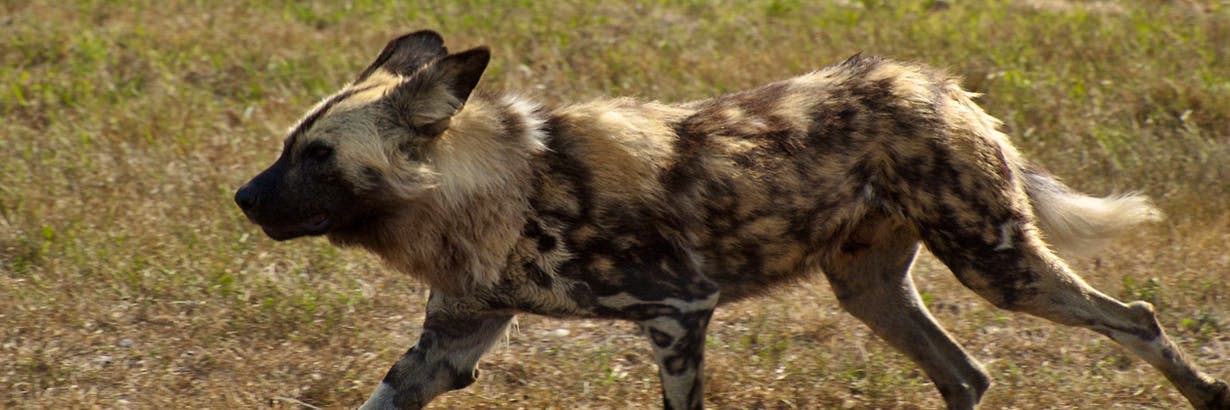
How to save African Wild Dogs
If you’re attracted to the unconventional, you may find volunteering with the African Wild Dog an interesting experience. Frequently confused with the Hyena, the African Wild Dog is a different species prided for their hunting technique and social hierarchy within the pack. Also known as the African painted dog, they are facing extinction with a mere 5000 dogs left on our planet. Learn more about these intriguing creatures and volunteer for the conservation of this important wildlife species.
African Wild dogs can’t count on much sympathy at first glance. They remind us a lot of hyenas and their hunting technique shows no remorse. To understand more about them, let’s take a closer look at some of their characteristics:
- They are also known as the painted wolf because of their pattern which is unique to each dog.
- Painted dogs are pack animals. There is an alpha breeding pair at the top of the hierarchy of the pack which means they are fed first before any other member of the pack.
- Pups are given priority over the alpha pair and are looked after by the other members of the pack.
- They are nomads traveling over 50km a day and their territories range between 400-1500 km.
- They have an 80% success rate while hunting thanks to their coordinated hunting technique. It’s all about teamwork here.
- There are about 5000 dogs left. The greatest threat to these form of wildlife is humans.
- They are specialized in hunting medium-sized prey between 15-50 kg such as antelope, springbok, and impala.
- Wild dogs are one of the few mammals that look after sick, old or disabled members of the pack.
what is being done to save African Wild Dogs?
Sub-Saharan Africa is home to the rare and endangered African wild dog, commonly known as painted wolves or Cape hunting dogs. Because of their striking coat patterns and group hunting habits, these extremely gregarious creatures are well recognized. However, because to human activities like habitat degradation, poaching, and sickness, their number has greatly decreased. Thankfully, there are several methods to support the survival of African wild dogs and save this rare species for future generations.
- Support conservation organizations
- Advocate for environmental legislation
- Educate yourself and others
- Support sustainable tourism
- Reduce your impact on the environment
Supporting conservation groups that aim to conserve African wild dogs is one of the finest ways to contribute to their survival. African wild dogs and their habitats are being protected by groups including the Wildlife Conservation Society, the Endangered Wildlife Trust, and the African Wild Dog Conservancy. You may assist these organizations' conservation efforts by making a donation or giving your time to them.
Supporting conservation laws and regulations that safeguard the species and its environment is another method to contribute to the survival of African wild dogs. This might entail backing conservation laws that safeguard the habitats of African wild dogs, opposing measures that would legalize the practice, and advocating for conservation education in classrooms and communities.
Learning about African wild dogs and the dangers they face can help you and others take action to rescue the species. Learn about the ecology, behavior, and natural history of African wild dogs and spread the word about it. Encourage your friends, family, and neighbors to find out more about the species and do something to conserve it.
African wild dogs can benefit from sustainable tourism's support of conservation initiatives. Look for tour companies that provide ethical opportunities to observe animals and support local conservation initiatives. Visit protected regions where African wild dogs can be found; doing so will aid in raising money for conservation efforts.
Taking steps to lessen your environmental effect can also help rescue African wild dogs. This entails lowering your carbon footprint by using sustainable products, eliminating trash, and saving energy. You may also cut back on the things you consume, such bushmeat and items made of ivory, that cause habitat destruction or the hunting of African wild dogs.
The unusual and imperiled African wild dog is under several dangers. However, we can make a difference and aid in the preservation of African wild dogs if we support conservation groups, fight for conservation legislation, educate ourselves and others, promote sustainable tourism, and lessen our influence on the environment. We can make sure that future generations will be able to observe and admire these amazing creatures by working together.
📋 African Wild Dog Conservation Status in 2025
According to the IUCN, the painted dog is an endangered species. With only about 5000 dogs left roaming the arid zones of the Savannah, it’s beyond time for African Wild Dog conservation efforts. You may be wondering why it is important to save these violent carnivores that are a threat to peaceful animals like antelopes, zebras, and the springbok. As one of the most efficient predators, they help regulate other species that may be overpopulated and maintain a healthy ecosystem. Volunteer with African animals and learn which place these cunning predators have among other wildlife.
🤷🏽♀️ Why are African Wild Dogs Endangered?
The main threat to the painted dogs that live in Africa, is humans. Let’s take a closer look at the main threats this wild dog is facing.
Poaching
Wild dogs are frequent victims of poaching attempts that are not directed at them. Poaching of exotic wildlife sharing the same habitat as the Wild dog has caused them to get caught in traps. This has played an important role in te decrease of the African Wild Dog population. African Wild dog body parts are utilized in traditional medicine, and their skin and teeth are prized as costly prizes, thus poaching is another issue.
Poisoned
Painted dogs are often poisoned by farmers because they are mistaken for hyenas or leopards that frequently attack their livestock.
Diseases
Disease is yet another important factor that has led to the reduction of wild dogs. Diseases like rabies and distemper, which may swiftly spread across a community and obliterate it, are extremely contagious among wild dogs. Besides, diseases like Rabies spread quickly among pack animals like the painted dog because they are so close and tend to feed each other. In addition, because lions and hyenas may compete with wild dogs for prey and territory, they can pose a threat to their lives.
Pack hierarchy
It’s normal for only the alpha male and female to reproduce within the pack. The other members will help take care of the pups. A litter will be born annually with up to 16 pups but the mortality rate is high.
Territory
Loss of habitat as a result of human activity is one of the major causes causing their decrease. Natural canines are forced to compete with cattle for resources when human populations increase and spread into wild regions. This can result in confrontations with farmers. Wild dogs need an outstretched territory to roam and hunt. As increased land is being used for agriculture, mining or logging industry purposes, it simply doesn’t leave enough room for wild dogs to survive.
Lions
Lions and wild dogs feed on the same prey. Lions are a threat to wild dogs because when given the chance, they will kill as many wild dogs as they can to eliminate the competition.
African wild dogs and their environment are being protected via conservation initiatives. For instance, measures are being introduced to help lessen confrontations between wild wolves and livestock herders, and national parks and wildlife reserves are being formed to conserve wilderness regions.
🌍 Best Places to Work with African Wild Dogs
Volunteers who are curious about this social and caring predator will be heading to Africa on their conservation journey. Let’s take a closer look at which countries you will explore. Some projects will focus on other animals alongside the African Wild dog. This will give you a wider perspective on the ecosystem and the place of different types of wildlife in the ecosystem. There are some great African Wild Dog conservation projects available in South Africa which is well known for its breathtaking nature and biodiversity. Volunteers who prefer to explore less trodden tracks with equally exquisite nature can opt to volunteer in Namibia or Botswana.
You can find African Wild Dogs in arid zones, woodland, shrubland and mountainous habitats and the Savannah of Africa. If you’re lucky, you will find them in:
You will also spot other spectacular African wildlife in these destinations as well!
🤔 How Can We Help African Wild Dogs?
The biggest impact on painted dog conservation would be for people to stop taking more territory and allowing nature to play its role. Because most people remain unaware of the importance of different species in the maintenance of biodiversity, one of the best things you can do is to spread the word and raise awareness. If you prefer a more hands-on approach, there’s always the option of volunteering with these curious canines and actively contributing toward protecting the African Wild Dog.
🤸🏽♀️ What Will I Do as an African Wild Dog Volunteer?
As a volunteer with wild dogs, you will witness them up close in their natural habitat or in a sanctuary where they are taken care of. Tasks will differ depending on the project and you will see other animals during your stay. Take a good look at the different conservation projects in Africa. Decide whether you prefer conducting research or opt for a project in a sanctuary if you really want to get close to the wildlife.
Let’s take a look at some of the tasks you may be doing if you decide to volunteer in a conservation project with Wild dogs. Conservation projects in Africa are usually focused on doing research on the wildlife species and finding out as much as you can about the current population. This is important so action can be taken to increase the population or prevent the further decline of the population. One thing is certain, you will witness this unique wildlife form along with many others in their natural habitat:
- Tracking and monitoring of rare or endangered animals
- Research and recording of findings
- Restoration and upkeep of the reserve
- Collection of tracks
- Collection of vegetation data
If you opt for work at a sanctuary, tasks will be less research-oriented but involve more hands-on work like caretaking activities:
- Feeding the wild dogs
- Cleaning their enclosures
- Daily maintenance
- Animal activities
- Fence checks
This is just to give you an idea of what you can expect when volunteering with wild dogs. This is an indication, however, meaning there will most likely be many more activities to participate in.
🎁 5 Benefits of Volunteering with African Wild Dogs
It’s become quite unusual to spot an African Wild dog because the are so rare. Volunteering for African Wild Dog conservation will be an insightful experience. It will also give you the unique opportunity to help reverse the downward trend of their population. Let’s also take a closer look at the benefits of volunteering with African Wild Dogs:
Learning Opportunities
Not only will you learn more about the wild dog during the project but also about their environment. You will get hands-on experience in conservation and observation. The volunteer experience in conservation work will give you opportunities to do valuable research and it will also bring you in touch with the local community. This will be a wonderful opportunity for cultural interchange.
People
Besides the local community, you will also connect with other volunteers who have the same goal as you and share similar interests. Rest assured that you will make meaningful connections with those who share your love for African wildlife.
Travel
If you’re an adventurer and love to travel, nothing will stop you from exploring your surroundings. Grasp this chance to immerse yourself into African nature.
Experiences
Volunteering is a brilliant way to expand your perspective of the world. Issues that seemed like huge problems before, may seem trivial after your wildlife volunteer experience. Life experiences like this provide valuable baggage that can prove helpful in the future. Volunteer and become a more resilient individual.
Health Improvements
Multiple research has shown that volunteering leads to better health and a healthier state of mind. Those who volunteer have lower mortality rates, function better and suffer less from depression later in life. Volunteer with wild dogs and experience the satisfaction of knowing you are helping an endangered wildlife species. Volunteer abroad in Africa and see what it does for your health and happiness!
Volunteer for an African Wild Dog conservation project and you will learn all about the peculiar habits of this carnivore. Take this opportunity to discover the pearls of Africa. Namibia, Botswana and South Africa are just a click away. Volunteer for a project with African Wild dogs and reap the benefits for years to come.
 Activities
Activities
 Africa
Africa
 Animal
Animal
 Wildlife Conservation
Wildlife Conservation
 Southern Africa
Southern Africa
 Cape Wild Dog
Cape Wild Dog
 Southwest African Lion
Southwest African Lion
 Lion Conservation
Lion Conservation
 South African Cheetah
South African Cheetah
 Cheetah Conservation
Cheetah Conservation
 African Leopard
African Leopard
 Leopard Conservation
Leopard Conservation
 Monkey Conservation
Monkey Conservation
 Namibia
Namibia
 Baboon
Baboon
 Meerkat
Meerkat
 Meerkat Conservation
Meerkat Conservation
 Animal Sanctuary
Animal Sanctuary
 Zebra Conservation
Zebra Conservation
 Hotspots
Hotspots
 Mountain Zebra
Mountain Zebra
 Anti Poaching
Anti Poaching
 Caracal Conservation
Caracal Conservation
 Caracal
Caracal
 Windhoek
Windhoek
 Antelope Conservation
Antelope Conservation
 Rhino Conservation
Rhino Conservation
 South Africa
South Africa
 Elephant Conservation
Elephant Conservation
 Mongoose Conservation
Mongoose Conservation
 Mongoose
Mongoose
 Giraffe Conservation
Giraffe Conservation
 Southern Giraffe
Southern Giraffe
 African Elephant
African Elephant
 Hyena Conservation
Hyena Conservation
 Bird Conservation
Bird Conservation
 African Buffalo
African Buffalo
 White Rhino
White Rhino
 Buffalo Conservation
Buffalo Conservation
 Warthog Conservation
Warthog Conservation
 Bush Elephant
Bush Elephant
 Hippo Conservation
Hippo Conservation
 Port Elizabeth
Port Elizabeth
 Elephant Research
Elephant Research
 Kudu
Kudu
 Impala
Impala
 Plains Zebra
Plains Zebra
 Horse
Horse
 Eastern Africa
Eastern Africa
 Zimbabwe
Zimbabwe
 Capuchin Monkey
Capuchin Monkey
 Eagle
Eagle
 Education
Education
 Youth Teaching
Youth Teaching
 Vervet Monkey
Vervet Monkey
 Johannesburg
Johannesburg
 Veterinary Training
Veterinary Training
 Intern Abroad
Intern Abroad
